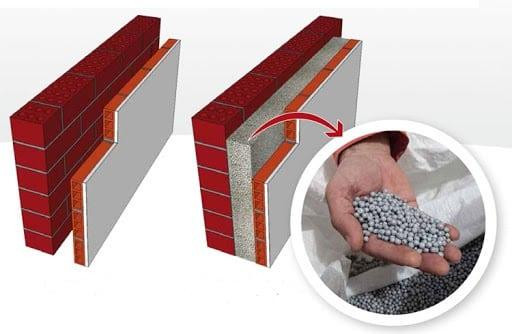As the world continues to grapple with environmental challenges, governments around the globe are taking steps to promote energy efficiency and reduce carbon emissions. One significant initiative in this endeavor is the funding of cavity wall insulation. In this article, we will explore what government-funded cavity wall insulation is, how it works, its benefits, and how it can help you make your home more energy-efficient.
Understanding Cavity Wall Insulation
Cavity wall insulation is a process of adding insulation material into the cavity, or gap, between the inner and outer walls of a building. This insulation acts as a barrier, reducing heat loss and preventing cold air from entering your home. While cavity walls provide a degree of insulation on their own, adding insulation material can significantly improve your home's thermal performance.
How Government-Funded Cavity Wall Insulation Works
Government-funded cavity wall insulation programs are designed to help homeowners and property owners improve the energy efficiency of their buildings. Here's how it generally works:
Eligibility Check: Homeowners can check if they are eligible for government-funded cavity wall insulation. Eligibility criteria often depend on factors such as location, income, and the type of property.
Survey and Assessment: If eligible, a surveyor or an energy efficiency expert will visit your property to assess its suitability for cavity wall insulation. They will determine if your home has unfilled cavities or if existing insulation needs an upgrade.
Installation: If your property is deemed suitable, the installation process begins. Small holes are drilled into the outer walls, and insulation material is pumped into the cavities. These holes are then filled and made inconspicuous.
Quality Check: After the installation, a quality check is performed to ensure the insulation material is evenly distributed and that the work meets the required standards.
Completion and Documentation: Once the installation is successful, you will receive documentation confirming the completion of the work and the level of insulation added to your home.
Funding and Grants: Depending on the government program and your eligibility, you may receive financial support or grants to cover part or all of the insulation installation costs.
Benefits of Government-Funded Cavity Wall Insulation
Energy Efficiency: The primary benefit of cavity wall insulation is improved energy efficiency. It helps your home retain heat, reducing the need for constant heating during the colder months. This, in turn, leads to lower energy bills.
Cost Savings: Lower energy bills mean more money in your pocket. Government-funded programs can help cover the installation costs, making it a cost-effective investment in the long run.
Comfort: With cavity wall insulation, your home becomes more comfortable year-round. You'll experience fewer drafts, more consistent temperatures, and increased comfort.
Environmental Impact: By reducing the amount of energy needed to heat your home, cavity wall insulation helps lower carbon emissions and contributes to environmental sustainability.
Property Value: A well-insulated home can increase its property value. It becomes an attractive asset for potential buyers or renters who are looking for energy-efficient living spaces.
Reduced Condensation: Cavity wall insulation can help reduce condensation issues within your home, which can lead to mold growth and associated health problems.
Eligibility for Government-Funded Cavity Wall Insulation
Eligibility for government-funded cavity wall insulation can vary depending on your location and government policies. However, several common factors may influence your eligibility:
Property Type: Some programs may be specific to particular types of properties, such as houses, flats, or bungalows.
Location: Eligibility may depend on your geographical location. For example, programs may target areas with colder climates or homes that are not adequately insulated.
Income Level: Your income or financial situation could affect your eligibility. Some programs are designed to assist low-income households.
Property Ownership: Whether you own the property or rent it may influence your eligibility for government-funded insulation programs.
Current Insulation: Some programs may consider whether your property already has insulation and whether it needs an upgrade.
Age of Property: Older properties may be prioritized for insulation, as they are often less energy-efficient than newer homes.
It's important to check with your local government or relevant agencies to determine your eligibility for cavity wall insulation programs in your area.
For More Info:-
free boiler scheme for pensioners
grants for insulation for pensioners
government home heating scheme






Comments